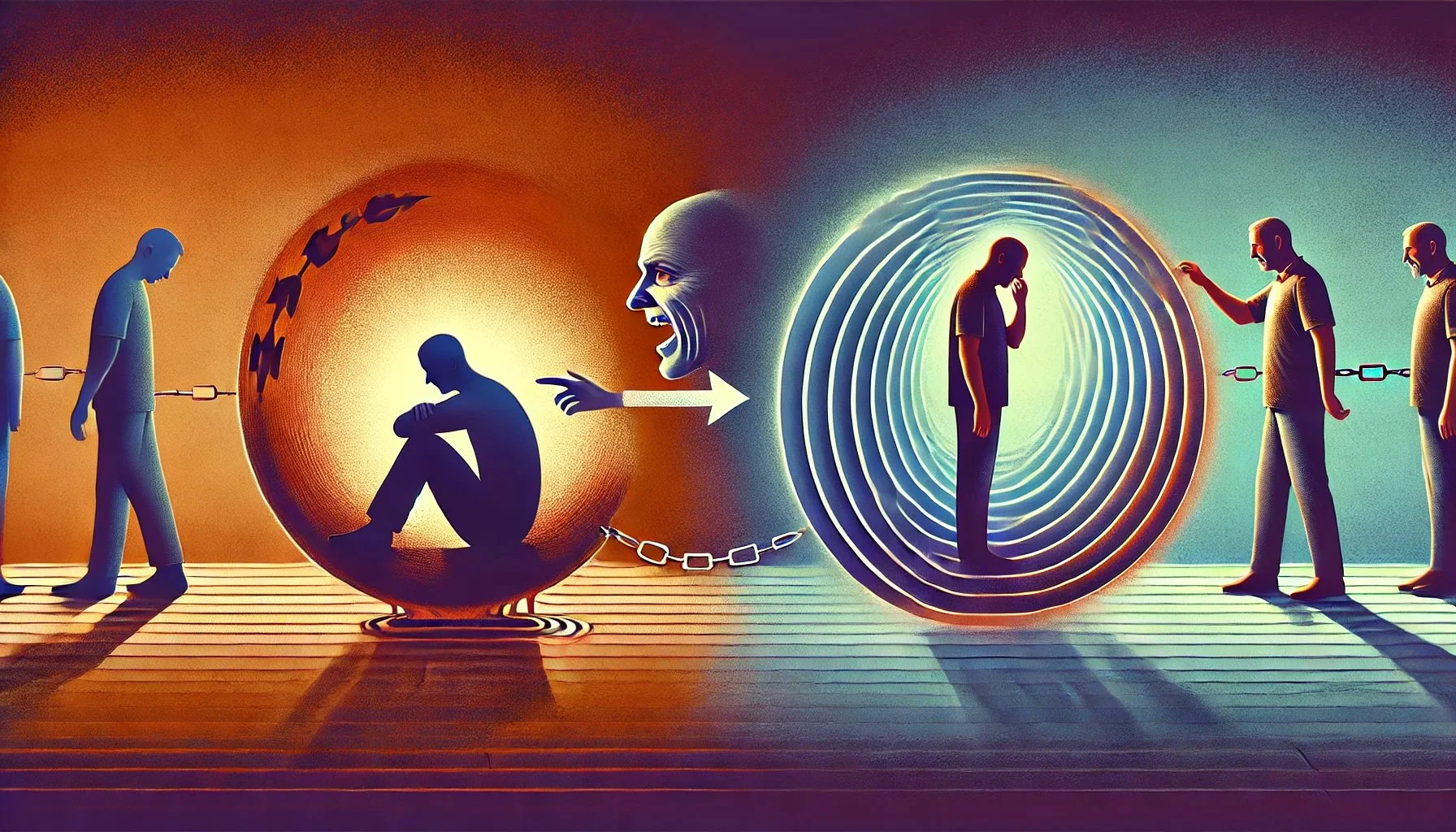Breaking the Cycle of Mistreatment & Betrayal
A GSM Vision for Growth, Leadership & Lasting Change
Mistreatment. Betrayal. Judgment. These patterns shape human interactions more than often realized. But what if society's response to harm is exacerbating the problem? What if cycles of mistreatment and betrayal—both throughout history and in personal experience—are not driven by intent, but by deficiency?
Gaps in character. Blind spots in development. Unresolved wounds passed from one generation to the next.
Yet, rather than addressing the root cause, society punishes individuals for their deficiencies. This is a cycle that not only perpetuates harm but reinforces it. The Global Stage Management™ (GSM™) Vision challenges this model, creating a principle-driven approach to transformation that applies across business, governance, and human development.
The Double Punishment of Unintentional Mistakes
When individuals lack wisdom, experience, or emotional intelligence, the natural result is deficiency-driven harm. However, rather than recognizing the underlying cause, responses often focus solely on punishment—without addressing the gap that led to the mistake.
This results in a double punishment:
1️⃣ The pain of recognizing one's own shortcomings.
2️⃣ The rejection, condemnation, or retaliation that follows.
The more punishment is used as a substitute for correction, the more judgment, resentment, and division become entrenched. This dynamic manifests at every level—from individual relationships to leadership, from corporate failures to international conflicts.
For meaningful change to occur—whether in economic reform, corporate leadership, or community development—reinforcing judgment will not be the catalyst. Instead, structured frameworks for growth, accountability, and transformation must be implemented.
The Cycle of Mistreatment & Betrayal
Mistreatment does not emerge in isolation. It follows a pattern:
Harm occurs, often unintentionally.
Rather than receiving tools for growth, the individual is judged, rejected, or labeled.
That rejection creates new wounds, reinforcing deficiencies instead of addressing them.
As a result, unresolved deficiencies lead to further harm toward others.
And so, the cycle continues.
This pattern is not limited to individuals—it extends to organizations, industries, and entire nations:
✅ In business – Where corporate failures lead to scapegoating instead of solutions.
✅ In governance – Where reactive policies punish rather than prevent.
✅ In social culture – Where public shaming replaces constructive reform.
✅ In economics – Where financial exclusion creates generational instability.
The GSM Vision is designed to interrupt this cycle, applying principle-driven business and leadership models that prioritize correction over condemnation.
How to Break the Cycle
1️⃣ Recognize that not all harm is intentional.
Understanding that mistakes often stem from deficiency rather than malice changes how problems are solved. Instead of demanding immediate retribution, an environment is created for education, development, and strategic correction.
2️⃣ Hold individuals accountable without condemnation.
Accountability is essential, but condemnation does not contribute to long-term solutions. Sustainable progress requires focusing on what must change, how it can be corrected, and which resources are missing.
3️⃣ Model leadership that breaks generational cycles.
Rather than reinforcing judgment, effective leaders demonstrate frameworks that foster growth. Every system—whether in business, governance, or finance—thrives when it prioritizes solutions over division, structure over reaction, and development over punishment.
Responsibility vs. Blame
Taking responsibility is not synonymous with accepting blame. It means:
✔ Owning the impact of one’s actions—even when unintentional.
✔ Making corrections—not for external approval, but for internal integrity.
✔ Setting a better example—so others learn from structured growth rather than retribution.
When others lack the character or knowledge to do this, the solution is not to enforce compliance through punishment, but to provide the resources and guidance they were never afforded.
The GSM Vision: Investing in Change, Not Judgment
A world that prioritizes punishment over progress will only ever produce division and reactionary leadership. But a world that prioritizes growth over retribution will build:
✅ Stronger economies
✅ More effective leaders
✅ Scalable business ecosystems
✅ Sustainable solutions to systemic problems
GSM™ applies this philosophy across business development, financial structures, corporate governance, and global strategy—ensuring that change is not just theoretical, but operational.
Final Thought
Punishment reinforces lack. Growth creates change.
Whether in leadership, business, or society, the solution to deficiency is not condemnation—it is correction.
This is the foundation of the GSM™ Vision—building systems that replace judgment with structured transformation, ensuring that economic, corporate, and societal growth are built on sustainable principles.



